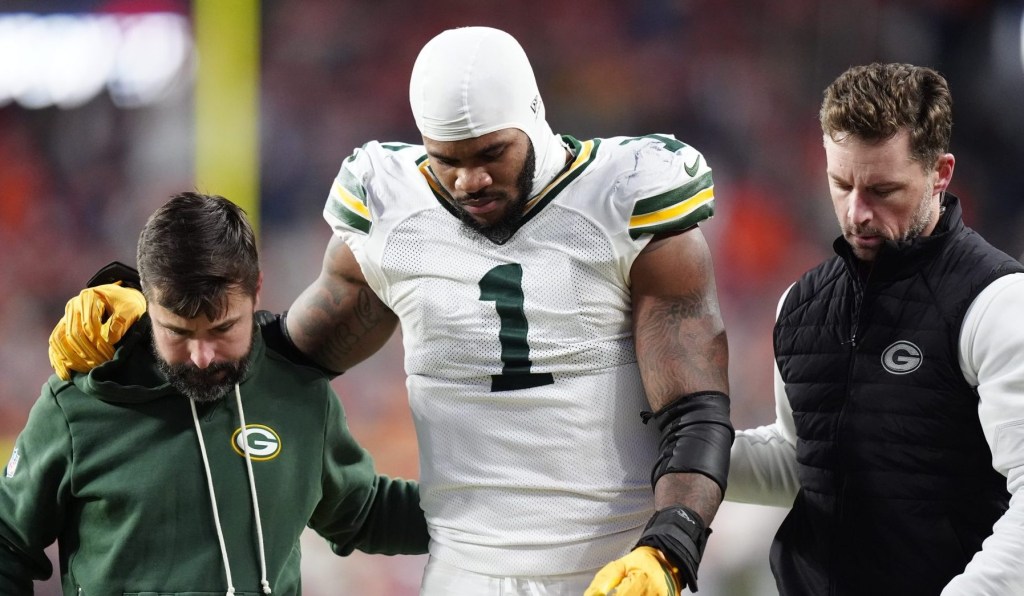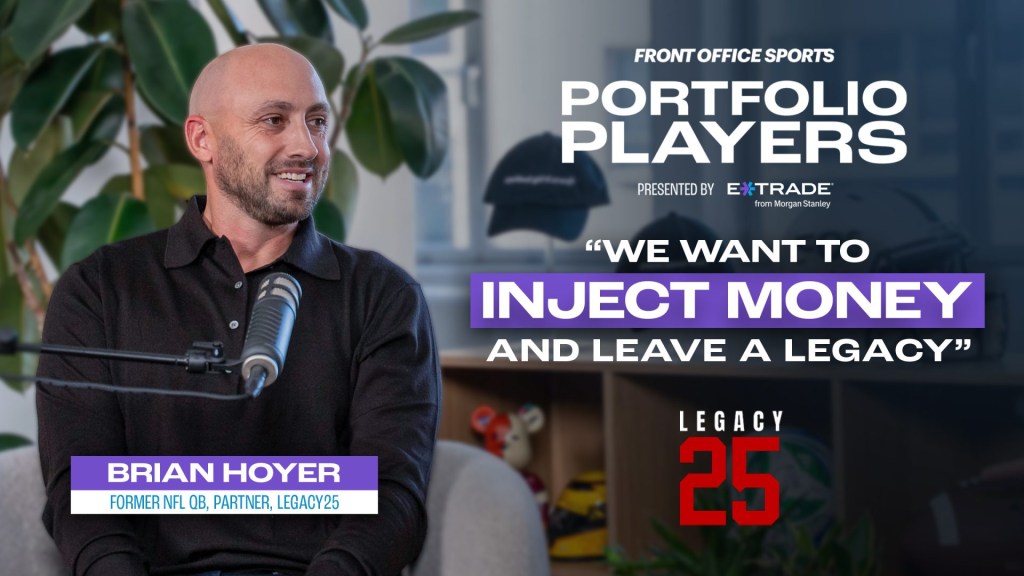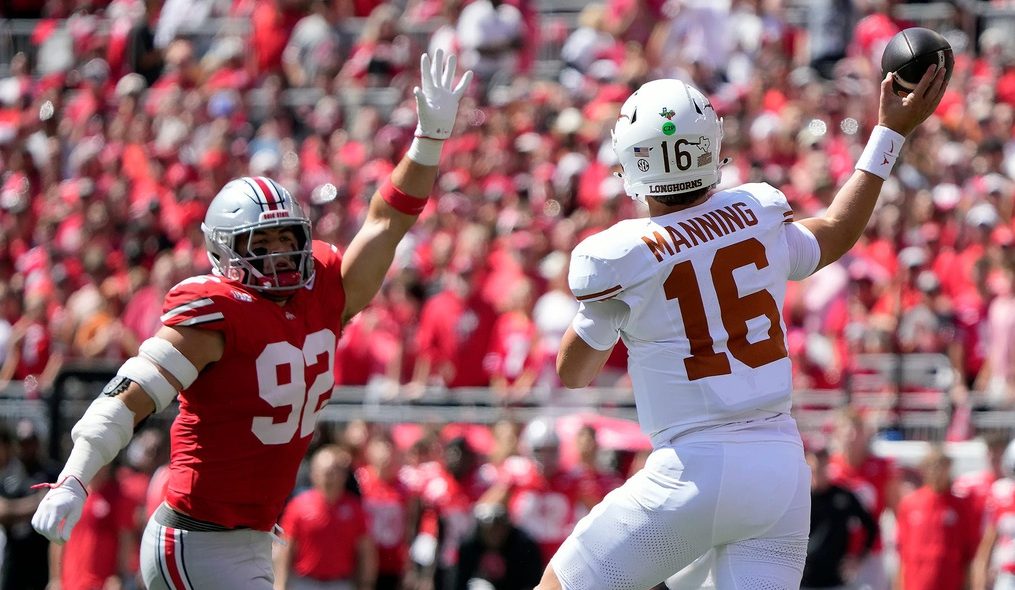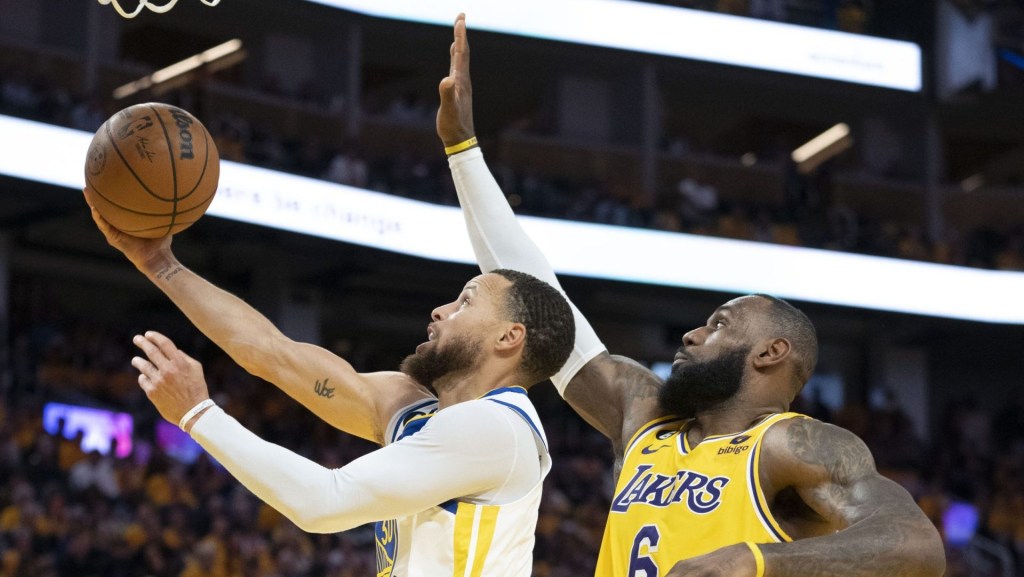Tens of thousands of football fans fantasize each day about being a member of the front office of their favorite team
This feature presented to you by the University of Nebraska — Lincoln Master of Arts in Business with a Specialization in Intercollegiate Athletics Administration.

Tens of thousands of football fans fantasize each day about being a member of the front office of their favorite team. The thought of drafting and trading for top talent, crafting the optimal organization and ultimately hoisting the Lombardi Trophy fills the heads of countless NFL enthusiasts.
Dan Hatman, Director of Scouting Development at The Scouting Academy, wants to help these football fanatics turn their dreams into reality. With a team that boasts a combined 375 years of combined NFL experience and 14 Lombardi trophies, The Scouting Academy is giving its students the tools and expertise to land and succeed in top NFL personnel jobs.
While Hatman is now a top influencer in the player evaluation community, his interest in sports as a career wasn’t always apparent. Hatman enrolled at the University of Albany (UAlbany), uncertain as to what direction he wanted to take his career. It was only after three changes to his major and a thoughtful conversation with his stepmother that Hatman discovered the sports industry as a potential career path.
Intrigued by the various career paths in the sports industry, Hatman reached out to the UAlbany’s Athletic Director, Lee McElroy, for advice. McElroy divulged an important truth to Hatman: operations is the backbone of all sports. Hatman diligently followed this guidance, taking a position as a student volunteer in operations at UAlbany, focusing on the logistics of running sports events.
After paying his dues by working and learning the ins and outs of sports operations, Hatman parlayed his experience into a position as a Defensive Assistant for the UAlbany. Despite its chaotic nature and the long hours, Hatman was hooked. He spent the remainder of his college days immersed in football.
Even though the passion was evident for Hatman, he cautions those that lack the experience of working for a collegiate or professional team.
“A lot of people think it’s just passion, but you certainly have to adopt that lifestyle. It becomes a part of your identity.”
“The lifestyle is very tough for family and things outside of the sport. You’re playing games on holidays and weekends. All the time, everybody else is having fun or spending time with their families, you’re working: early mornings, late nights, the whole nine yards. A lot of people think it’s just passion, but you certainly have to adopt that lifestyle. It becomes a part of your identity. One of the reasons teams like to hire those that have worked for a football team before, even college programs, is that they want to see you’ve adopted the lifestyle.”
Hatman leveraged his experience coaching with the UAlbany team to land an interview with the New York Giants for a summer internship prior to his senior year. After a chat with Director of Player Personnel Dave Gettleman (current General Manager of the Carolina Panthers), Hatman was selected as one of two summer interns for the Giants.
Upon completion of his senior year at UAlbany, Hatman was offered a position as the Giant’s full-year intern, which he accepted. Fortunately for Hatman, he joined the franchise at the perfect time, as he eventually received a ring as a member of the front office during the Super Bowl XLVI run.
After having a handful of tactical discussions with fellow members of the Giants personnel department, Hatman determined that a master’s degree was paramount to climbing the ladder within an organization. At the highest levels, passion and football acumen alone are not enough to accomplish the tasks at hand.
Consequently, Hatman applied to various sports and business administration dual-degree programs, ultimately deciding upon the University of Massachusetts, Amherst (UMass-Amherst). UMass-Amherst allowed Hatman to earn both an MBA and an MSA, while also providing the largest base of alumni in the NFL. With big names such as current Dolphins EVP of Football Operations Mike Tannenbaum, Cardinals VP of Player Personnel Terry McDonough and Vikings Director of College Scouting Jamaal Stephenson, among others, UMass-Amherst has strong NFL ties.
Almost immediately upon stepping foot on campus, Hatman connected with UMass-Amherst’s head football coach, earning a spot as the graduate assistant for Special Teams and Defensive Line. In addition to his work on the football field and coursework, Hatman also served as an instructor for an undergraduate class on Sports Law and Sociology of Sports.
After finishing up his first year at UMass-Amherst, Hatman used his immense football experience and alumni network to land another NFL internship interview. This time, he was called into the office of New York Jets GM Mike Tannenbaum, a fellow UMass-Amherst alum. Hatman, based on his background in coaching and NFL scouting and relationships with the Jets, considered himself a shoe-in. That was, until Tannenbaum unveiled a stack of over 500 resumes and asked what set Hatman apart.
“How are you standing out in that crowd? Have an answer to that question. It can’t just be passion. It can’t just be football acumen. Those are mandatory. You better have another skill in your tool belt.”
“What makes you different from the 500–2,000 people that think sports and scouting may be something they’re interested in? That’s a huge stack of unsolicited material for them to sort through, even if they have the time to do so. How are you standing out in that crowd? Have an answer to that question. It can’t just be passion. It can’t just be football acumen. Those are mandatory. You better have another skill in your tool belt. “
Nevertheless, Hatman impressed the Jets organization and earned a spot as a summer intern. Hatman spent two months as a Pro Personnel Assistant, but, due to the climate of the 2011 lockout, didn’t have a guaranteed full-time offer from the Jets.
Following graduation, Hatman worked a couple of coaching and scouting jobs, prior to getting an offer from the Philadelphia Eagles to serve as a Pro Scout. All along the way, in every organization and team he was involved with, Hatman was taking notes, aspiring to someday run his own team or business. That day finally came after two seasons with the Eagles.
“I don’t think there is a specific stat that can be broadly applied to football to help you identify undervalued assets, but I do think, in the game, there are small incremental improvements in a variety of areas. If I can get one percent better here, one percent better there and one percent something else, those things start to add up. I’m a big believer in process improvement. “
Hatman left the Eagles in the spring of 2013 to co-found Dynamic Sport Solutions, a company that revolved around the idea of helping teams and companies consistently improve their processes. It was in the midst of operating Dynamic Sport Solutions that the idea for Hatman’s latest venture, The Scouting Academy, was generated.
While searching through some old binders, Hatman stumbled upon a presentation he had given on a potential apprenticeship program for the Eagles. Each year, teams like the Eagles will hire young, inexperienced scouts without a formal development program. The scouts are thrown in the deep end; some succeed, but many others fail and are replaced by more young, cheap talent.
“Everybody that’s working in a front office has a job that impacts what goes on the field on Sunday. There’s nobody getting paid in the front office to do something of so little value that it doesn’t impact somebody. Even the pro scouting intern helping with the special teams advance is helping the coaching staff prepare for the week. It’s not necessarily changing the entire outcome of games, but it’s going towards the final product.”
“You don’t have any room for failure with any human capital acquisitions: scouts, coaches, players. The teams that win, and win consistently, have fewer and fewer misses across all of those departments.”
“You don’t have any room for failure with any human capital acquisitions: scouts, coaches, players. It happens and you come to accept that as part of the business, but I don’t philosophically believe there’s room for it. The teams that win, and win consistently, have fewer and fewer misses across all of those departments.”
Hatman clearly saw how providing teams with vetted, well-trained scouts on the front end helped ensure production and success on Sundays. In order to validate the market among prospective scouts, Hatman posted an inquiry on WorkInSports, offering his time to teach the fundamentals of scouting and player evaluation to any interested parties. Expecting only a small number of interested parties, Hatman received over 100 applications in the first week.
Hatman filtered the 100+ applicants into a group of 15 and launched the pilot for what would eventually become The Scouting Academy. Over the course of eight months, Hatman taught these students the core traits associated with player evaluations, how to communicate what they saw on the field in a universally understood manner and how to write formal, well-formatted reports.
Realizing that the demand was significantly larger than originally anticipated, Hatman created a learning platform that could allow the program to scale. Additionally, Hatman used his vast network to draw the likes of Former Bears GM Jerry Angelo, ESPN Analyst Louis Riddick, NFL Coach Wade Phillips and a plethora of others to help build content for the platform. Each week, new content is added to update and improve the curriculum, providing the best education possible for students.
“The biggest rule with every decision made in and around The Scouting Academy is, ‘Is this the best thing for the scouting community?’ Because if we do that and every decision is based around what is best for the community, then those who are coming in and learning will be improved and the college or pro teams that are hiring them will be better off. That’s a win-win.”
The Scouting Academy segments the game into eight positional modules. Each student attacks one module at a time, reviewing film, submitting scouting reports and receiving feedback along the way. Once students master a certain module, they can progress to the next positional group.
“We push people. Once they think they have it, we open up other doors. We’re constantly teaching because there’s always something to explore or analyze to determine if a guy can play.”
To date, The Scouting Academy has eight alumni in NFL personnel departments, eight alumni in college football recruiting offices and countless others in media, agencies and other parts of the game. As more and more collegiate programs trend towards a front office model similar to that of its professional counterparts, the demand for educated talent evaluators will only increase.
For those interested in becoming an NFL GM someday, The Scouting Academy is the perfect starting point. Although, as Hatman points out, picking players isn’t the only quality needed to be a successful executive.
“You have to understand what it means to be a top decision maker in a team and all of the things that they’re confronted with. A top level executive has to manage a staff in a unique way, scout players, work with/hire your coaching staff, work with/hire trainers and doctors, interface with equipment staff, analytics and business teams. They’re a lot of different verticals that touch GM and executive type roles. Finding a player is an important, important piece, but it’s not everything.”
“When you can go to the person who will ultimately be hiring you and show them you’ve checked the box for passion and football acumen, as well as the one, two or three skills that you’ve worked to acquire to set yourself apart, that’s where you can really get to be unique as a candidate.”
“If you’re going to start down this road, try to understand all of the different things that you might want to touch and go find a piece of that you can add. Go study economics, the law, kinesiology and/or psychology. When you can go to the person who will ultimately be hiring you and show them you’ve checked the box for passion and football acumen, as well as the one, two or three skills that you’ve worked to acquire to set yourself apart, that’s where you can really get to be unique as a candidate.”
As for Hatman ever heading back to the NFL, he doesn’t see it happening in the near future. To a certain degree, he views his position at The Scouting Academy as his ‘dream job.’
“One of the fun things about working in a front office was putting the team together. There’s a lot of pieces in the puzzle and you have to fit together right in order to win. That drove me every day. I get the same satisfaction out of taking individuals that really truly want to improve their evaluation ability and push themselves as they move out into their career paths. I’m in my dream job. I’m helping people get better. We’re improving the evaluation community. I think we’ll be able to impact the game at some level.”

















